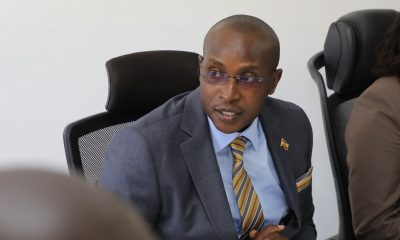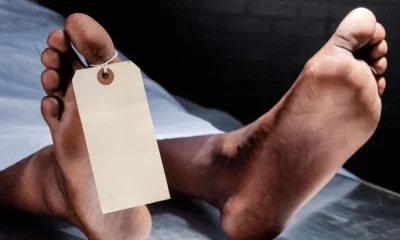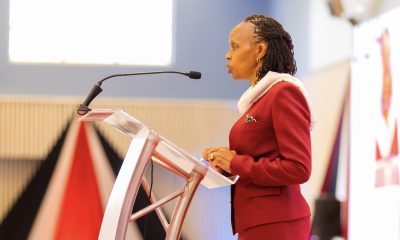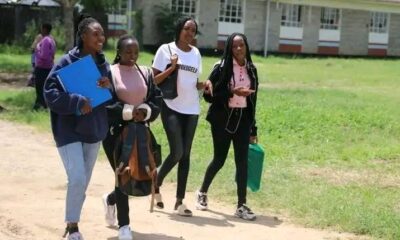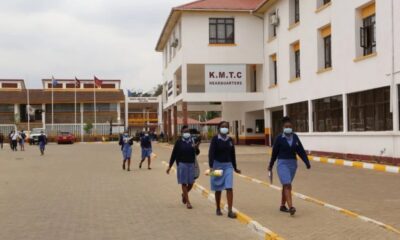Investigations
Postgraduate Lecturers at KMTC Accused of Orchestrating Anatomy Fraud, Endangering Medical Training
The ring is reportedly led by a well-connected figure within KMTC who allegedly enjoys protection from senior management.
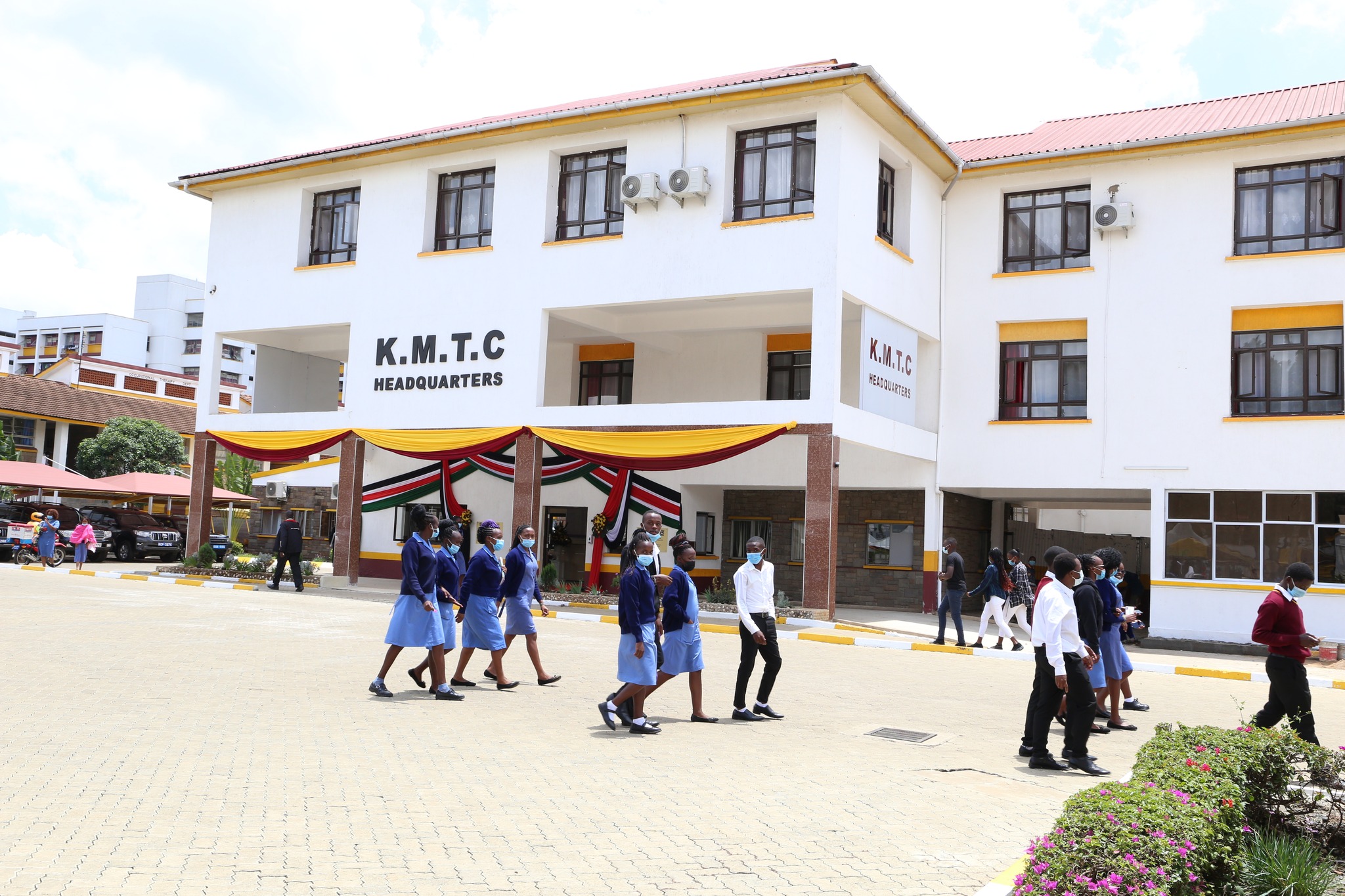
A storm is brewing at the Kenya Medical Training College (KMTC) following explosive allegations that a group of postgraduate students in the Department of Human Anatomy have manipulated the academic system to suit their personal agendas at the grave expense of quality healthcare training in Kenya.
The whistleblower tip, shared anonymously with Kenya Insights, paints a damning picture of how the core discipline of Human Anatomy, the structural foundation upon which all medical and nursing education is built has allegedly been reduced to a mockery through an illicit online learning scheme.
According to internal sources, a clique of postgraduate Anatomy students, some of whom are already working at KMTC, managed to convince the institution’s Head of Faculty that Human Anatomy, a highly practical and tactile subject, could be effectively taught online.
This proposal was reportedly approved without proper scrutiny, despite the globally accepted fact that Anatomy especially for Clinical Medicine and Nursing students must be taught in-person through rigorous, hands-on dissection and laboratory demonstrations.
“It is the foundation. You cannot trust anyone with a patient if they haven’t mastered the human body’s structure through physical experience,” the insider emphasized.
What makes the revelations more shocking is the alleged motive behind this move.
These students are said to be pursuing their PhDs physically in various institutions while simultaneously drawing full allowances at KMTC thanks to the online arrangement that allows them to appear “present” at work.
In doing so, they reportedly continue to earn lucrative teaching and supervision allowances, while outsourcing or rushing through practical sessions for their students — a serious breach of medical training ethics.
But that’s not all.
The group is accused of illegally altering KMTC’s official Anatomy curriculum — a move that not only undermines the institution’s academic integrity but also renders other qualified lecturers unable to teach the course due to inconsistency in structure and delivery.
Perhaps most worrying is the practical consequence for Kenya’s next generation of healthcare professionals.
Anatomy, particularly Regional Anatomy, is a highly technical subject that typically takes Bachelor of Medicine students two years to complete, with 71% of it focused on hands-on dissection.
Yet, these KMTC students have allegedly forced all Diploma in Clinical Medicine students across the country into a compressed one-week dissection program an impossible task by any credible academic standard.
“There’s not even a regional Anatomy textbook for Diploma students globally that’s how absurd this is,” the tipster noted.
“They are making up content with no references, endangering both education standards and patient safety.”
The ring is reportedly led by a well-connected figure within KMTC who allegedly enjoys protection from senior management.
This has created an atmosphere of fear and paralysis among staff and faculty who feel powerless to question or expose the scheme.
“This is no longer an academic concern. It is a public health risk. These students, if poorly trained, will become clinical officers who misdiagnose or make deadly errors. What they’re doing is worse than a cholera outbreak,” the whistleblower stated grimly.
An online search corroborates the concern — standard global practice dictates that Diploma-level students are taught Systemic Anatomy, with structured demonstrations and supervised lab sessions, not Regional Anatomy, which demands advanced skills and experience.
The decision to impose the latter on KMTC’s diploma students is not only academically unjustified but also unprecedented.
As of press time, KMTC had not issued a formal response to these serious claims.
However, insiders suggest the matter is already causing quiet unrest within the faculty and among students, with some considering whistleblower actions of their own.
This story raises urgent questions: Who approved these changes? Why is KMTC silent despite the academic and ethical implications? And how many other public institutions are compromised by similar self-serving schemes?
Kenya Insights will continue to investigate.
In the meantime, the Ministry of Health and Medical Practitioners Board must act swiftly to audit this program, safeguard public trust, and protect the lives that hang in the balance.
Kenya Insights allows guest blogging, if you want to be published on Kenya’s most authoritative and accurate blog, have an expose, news TIPS, story angles, human interest stories, drop us an email on [email protected] or via Telegram
-

 News1 week ago
News1 week agoKenyan Driver Hospitalized After Dubai Assault for Rejecting Gay Advances, Passport Seized as Authorities Remain Silent
-

 Business2 weeks ago
Business2 weeks agoKakuzi Investors Face Massive Loss as Land Commission Drops Bombshell Order to Surrender Quarter of Productive Estate
-
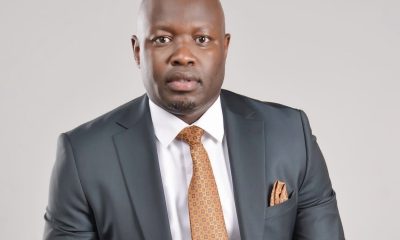
 Investigations3 days ago
Investigations3 days agoMoney Bior, Lawyer Stephen Ndeda Among 18 Accused Of Running An International Fraud Ring Involved With Scamming American Investor Sh500 Million
-
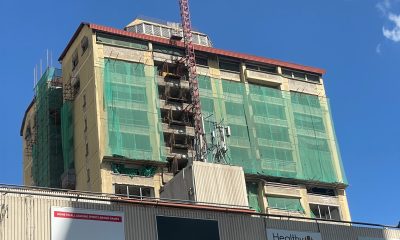
 Business1 week ago
Business1 week agoConstruction Of Stalled Yaya Center Block Resumes After More Than 3 Decades and The Concrete Story Behind It
-

 Investigations2 days ago
Investigations2 days agoNestlé Accused of Risking Babies’ Health in Africa with ‘Toxic’ Cerelac Product Sold Highest in Kenya
-
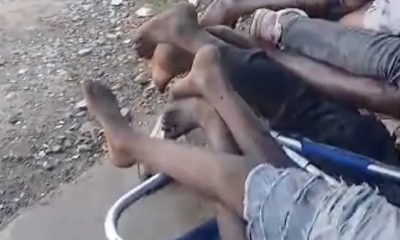
 Investigations2 weeks ago
Investigations2 weeks agoCNN Reveals Massive Killings, Secret Graves In Tanzania and Coverup By the Govt
-

 Business2 weeks ago
Business2 weeks agoBANKS BETRAYAL: How Equity Bank Allegedly Helped Thieves Loot Sh10 Million From Family’s Savings in Lightning Fast Court Scam
-

 Investigations1 week ago
Investigations1 week agoHow Somali Money From Minnesota Fraud Ended In Funding Nairobi Real Estate Boom, Al Shabaab Attracting Trump’s Wrath

